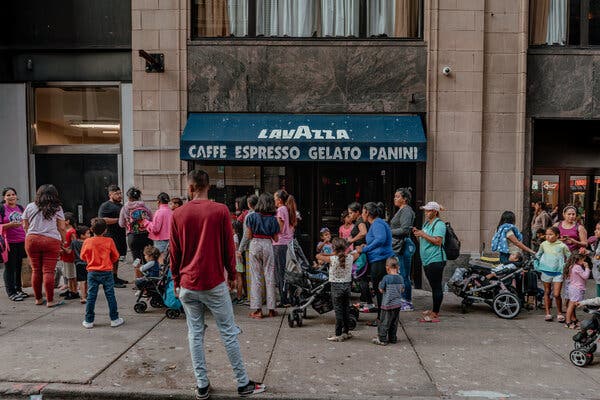On Sunday, more than thirty migrants were evicted from shelters in Chicago under a new 60-day limit on shelter stays, which, however, includes a number of exceptions.
A total of 34 migrants, mostly men, were evicted from three shelters. After the eviction, most of them found themselves on the street on a freezing and windy day.
In a press release issued Friday, Mayor Brandon Johnson said Chicago’s “limited resources cannot support the full scope” of the mission to welcome newcomers, adding that the city is “continually evaluating options that will result in better services for all Chicagoans.”
The eviction policy has faced sharp criticism from advocates and aldermen who believe it is unreasonable to expect newcomers to find housing without jobs.
Alderman Andre Vasquez, who represents the city’s 40th Ward, warns that the city could see more tent encampments around the shelters. However, Mayor Brandon Johnson says migrants who are forced out can always get to the back of the line and start over.
As a result of the new exemptions, families with children or people exposed to the recent measles outbreak could ask for an extra 30, 60 or even 90 days. According to Johnson’s office, about 4,500 people who were scheduled to leave shelters in March, April and May will have their stay extended.
However, everyone who remains in shelters must be vaccinated against measles, mumps and rubella (MMR) as part of outbreak control.
With evictions slated to continue, many question how migrants can pay bills without legal work.
More evictions are expected to be staggered across Chicago’s shelters in the coming weeks. A total of 1,700 people could be evicted by May – with no clear answer on how they will pay rent or qualify for an apartment.
